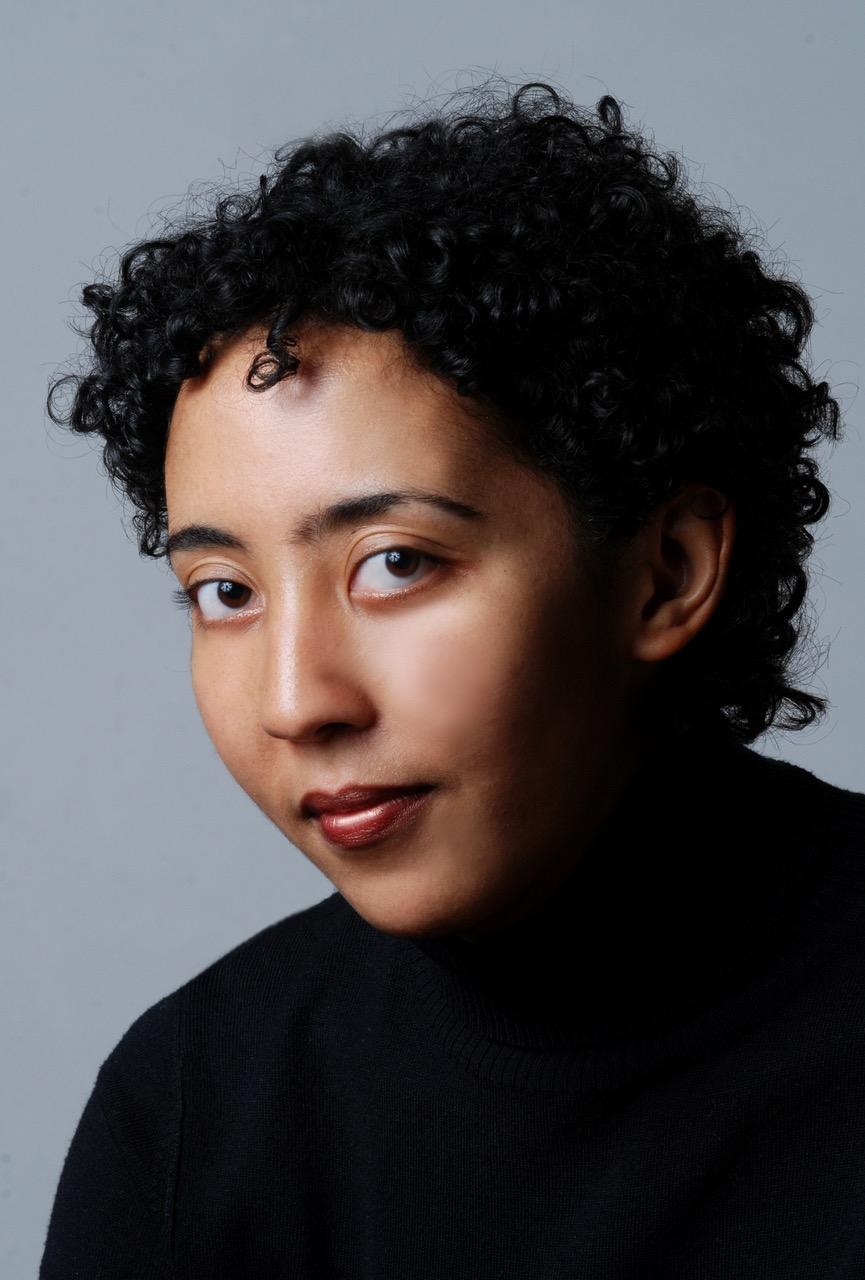 |
| photo: Peg Skorpinski |
Namwali Serpell is a Zambian writer who teaches at the University of California, Berkeley. She won the 2015 Caine Prize for African Writing, received a Rona Jaffe Foundation Writers' Award for women writers in 2011 and was selected for the Africa 39, a 2014 Hay Festival project to identify the best African writers under 40. The Old Drift (Hogarth, March 26, 2019) is her first novel.
On your nightstand now:
Lydia Kiesling's The Golden State--Lydia and I recently met and decided to read each other's debuts. It turns out this is a wonderful way to get to know someone. I finished it a few nights ago and burst into tears on the final page--both because it was so moving and because it was over!
N.K. Jemisin's The Fifth Season--for a while now, I've had five novels I want to write--my beasts, I call them. But when I turned in the final proofs of The Old Drift last fall, a brand-new novel ambushed me. This sixth beast appears to be set in a land called Zim Zam Zom, where geology, geography, and time are warped in fantastical ways. I wanted to see how a master of the genre manages this sort of entanglement of reality and unreality.
Paul Bloom's Against Empathy--I read this smart, lucid book because I'm writing an essay that argues against the idea that literature promotes empathy. I propose instead that we think of art in terms of political representation.
Favorite book when you were a child:
Quentin Blake's Mr Magnolia was my first favorite book. Between the ages of two and four, I lived with my family in Hull, England, while my mother did her master's in economics and my father took a sabbatical from the University of Zambia. I think I loved this book in part because every day on our way to his office, Papa would push my stroller under a row of magnolia trees in a local park. I've learned since that Mr. Magnolia's name is entirely incidental, but I remember picturing him as a man made of blushing cupped blossoms.
Your top five authors:
The word "top" doesn't make sense to me in this context. When I won a prize for African fiction in 2015, I split the reward with the other four shortlisted writers because, as I said then, "writing is not a competitive sport." I'm a literature professor and a writer, which is to say, I'm a reader at heart: that is my vocation. I love too many different authors for too many different reasons to decide which are more important than others (moved me to tears vs. to laughter, for instance) and then to choose only five!
Book you've faked reading:
The Brothers Karamazov. I took a college course on the Russian novel, where we had to read it, along with Crime and Punishment, Anna Karenina and War and Peace! Most of us managed only three out of four, and that was the one I dropped because I'd only enjoyed about two scenes in Crime and Punishment. I did eventually read The Brothers Karenina, as I jokingly call it, when I was a teaching assistant in grad school. I'm glad I went back to it--my admiration for Dostoevsky expanded exponentially.
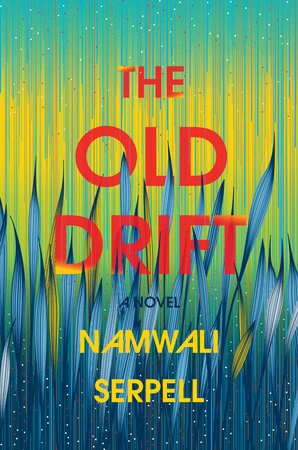 Book you're an evangelist for:
Book you're an evangelist for:
Georgina Kleege's Blind Rage--a brilliant book, a set of letters to Helen Keller through which Kleege, my colleague at Berkeley, works through her anger at being constantly compared to one of the most famous blind people in history. Kleege reimagines Keller's startlingly strange life, from being put on trial for plagiarism at age 12 to her campy performances on the vaudeville stage to her brief and scandalous attempt to elope.
Victor LaValle's The Changeling--I picked this novel up on an impulse one evening and finished it eight hours later, tear-streaked and beaming. It's an incredible modern-day fairy tale, written in LaValle's sly, loping voice. It follows a couple through the horrors of caring for a newborn--and I mean horrors literally--while taking on contemporary questions of race, gender, technology, family and more.
Book you've bought for the cover:
An old edition of one of my favorite novels, Sula.
Book you hid from your parents:
I was obsessed with science fiction in middle school, the works of Michael Crichton in particular. Having made my way through Jurassic Park, Sphere and Congo, I stumbled upon Rising Sun. This was, let's say, a rather different genre. I snuck into my parents' study for a week to read it, always replacing it on the bottom shelf where I'd found it so I wouldn't be discovered.
Book that changed your life:
Milton's Paradise Lost--it made me switch majors from biology to English in college. I still call it my "gateway drug."
Favorite line from a book:
"Blind mouths!" From another work by Milton, "Lycidas." I quote it in my book of literary criticism, Seven Modes of Uncertainty, and in The Old Drift. Years after I latched onto this bizarre, sublime phrase (the spondee! The exclamation point! The synesthesia!) I learned that my British grandfather had written an essay about it. He had speculated that Milton took the phrase from a sermon that referenced Strabo's spurious account of a tribe called the Astomi: "They live near the sources of the Ganges, and are supported by the smell of dressed meat and the fragrance of fruits and flowers; having instead of mouths orifices through which they breathe." Grampa's essay was published posthumously when I was six years old, but I only learned about it when I was in grad school, so this coincidence felt especially eerie.
Five books you'll never part with:
Again, I'm not quite sure about applying this numerical logic to literature. That said, these are some of the books that I doubt I'll ever part with or turn against in my mind:
Jane Eyre--I read a Xeroxed copy of this disturbing, troubling, fierce book one sleepless night when I was back in Lusaka for high school. I finished it in a space much like the one with which it opens: reading beside a curtain, November rain outside the window, immersed in the otherworld of books.
The Strange Case of Dr Jekyll and Mr Hyde--it's a wonder to think you know everything about a story from popular culture, only to encounter its unaccountable weirdness and richness when you finally read it for yourself.
Their Eyes Were Watching God--I have reread this book more times than perhaps any other. It is a virtuosic and profoundly true novel. And yes, I'm still in love with Teacake, and yes, I know that he's probably bad for me.
Lolita--I've written about my love for Uncle Vlad's opus elsewhere. It is, as one of my professors once put it, a perfect novel. Or perhaps Lolita is a compressed accordion of perfect novels, since every reading makes it new.
Beloved--A lot has been said about this book so I'll just point out one less noticed sign of Morrison's genius: after the grand climax--involving an exorcism, a PTSD-induced hallucination, the residents of 124 Bluestone road and 30 women--Stamp Paid and Paul D run into each other and joke about it. Their laughter is sweetness and bitterness and salt all at once.
Book you most want to read again for the first time:
The Days of Abandonment. I was in a very low place when I first read Elena Ferrante's novel. It had been a long time since I even felt like reading--which is a way of saying it had been a long time since I felt like myself. This novel jolted me back to life, to me. I'll never forget the fugue-like creep of suspense and wonder as I lay on my side in bed, turning the lamplit pages.
Book you love-hate:
American Psycho. I'm writing a scholarly nonfiction book called A Thin Line, about how much I love to hate (and hate to love) Bret Easton Ellis's 1991 novel. I've decided that the best way to capture my ambivalence is through the practices we call "shade," "dragging" and (yes) "reading."
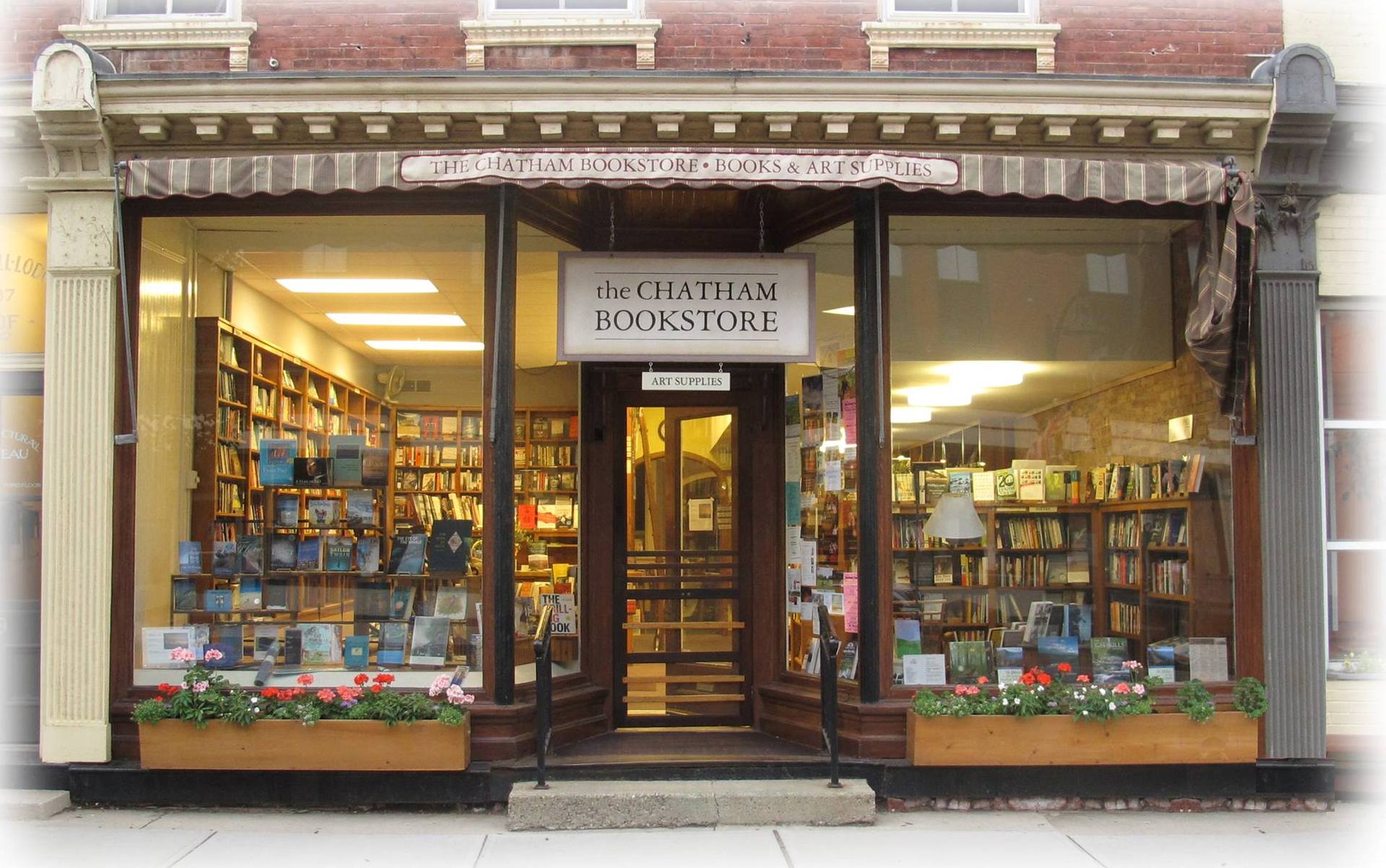 The Chatham Bookstore in Chatham, N.Y., which was founded in 1977, has been put on the market by owners Nicole Furnée and Thomas Chulak. They announced the decision in the shop's e-mail newsletter, noting: "How lucky we are to have come together more than seven years ago to carry the store forward and be an integral part of the community. Now it seems it is the right time to pass it along. And so, we will begin searching for new owners who are committed to keeping the store a vibrant part of Main Street. As we search, we will continue to serve you with joy and commitment.... Yes, we are looking for someone to love this place as we love this place."
The Chatham Bookstore in Chatham, N.Y., which was founded in 1977, has been put on the market by owners Nicole Furnée and Thomas Chulak. They announced the decision in the shop's e-mail newsletter, noting: "How lucky we are to have come together more than seven years ago to carry the store forward and be an integral part of the community. Now it seems it is the right time to pass it along. And so, we will begin searching for new owners who are committed to keeping the store a vibrant part of Main Street. As we search, we will continue to serve you with joy and commitment.... Yes, we are looking for someone to love this place as we love this place."




IPC.0204.S3.INDIEPRESSMONTHCONTEST.gif)




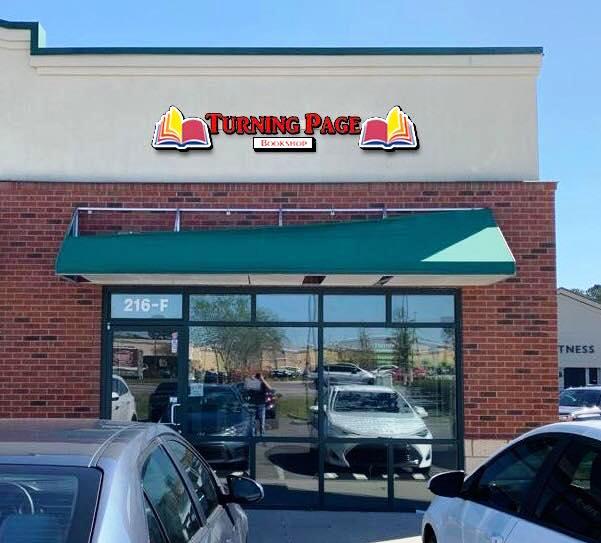 The Booksmith in Seneca, S.C., has closed after five years in business due to the ending of a lease, but owner VaLinda Miller is already planning to open
The Booksmith in Seneca, S.C., has closed after five years in business due to the ending of a lease, but owner VaLinda Miller is already planning to open 
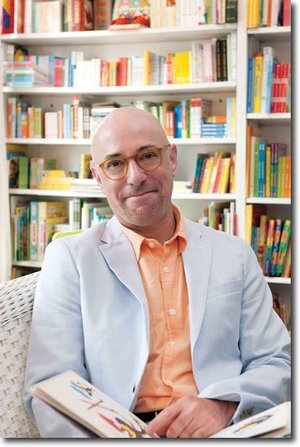

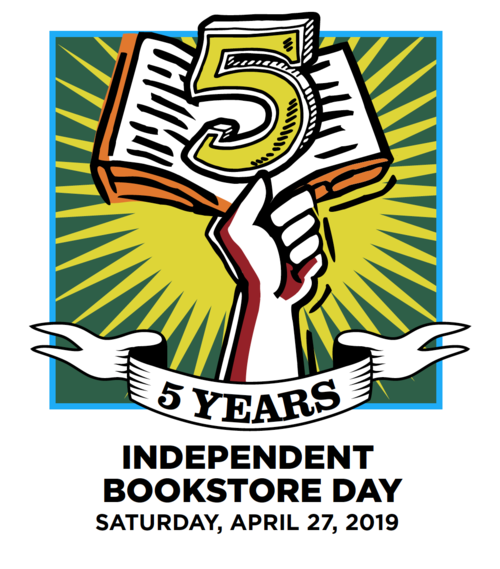
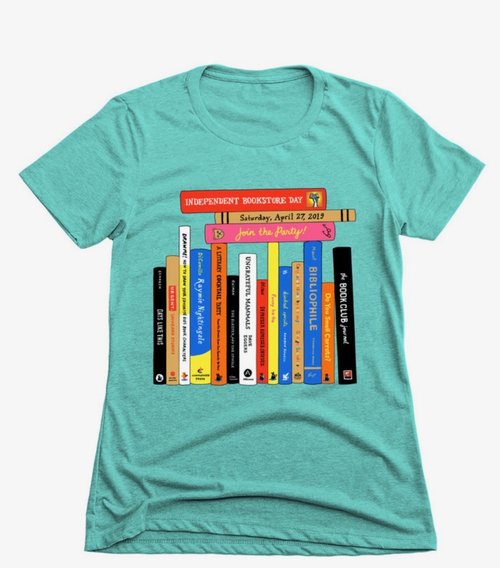 All around the country, bookstores are teaming up for bookstore crawl and bookstore passport events:
All around the country, bookstores are teaming up for bookstore crawl and bookstore passport events: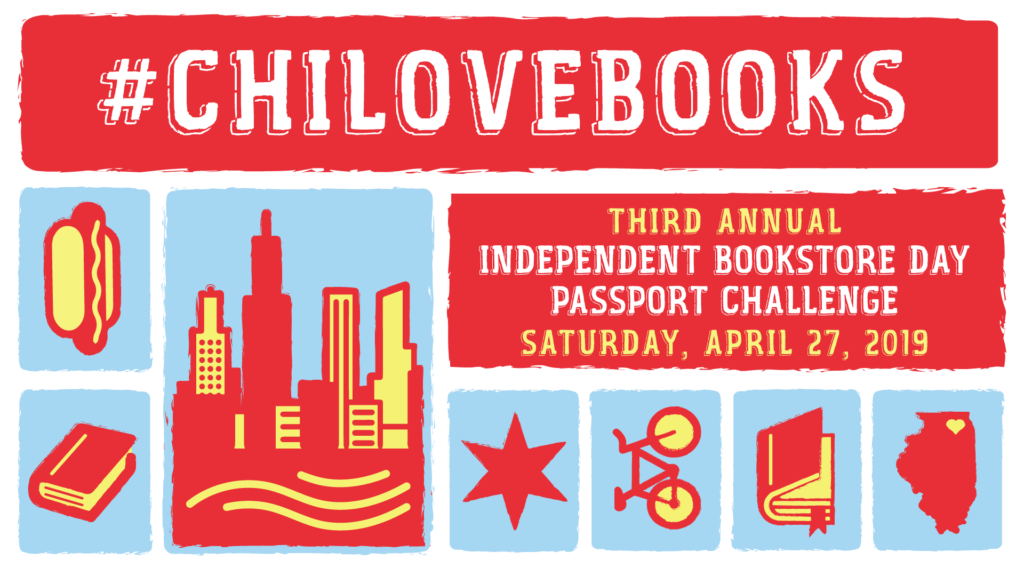 More than two dozen indie bookstores in the greater Chicago, Ill., area will be participating in the third annual
More than two dozen indie bookstores in the greater Chicago, Ill., area will be participating in the third annual 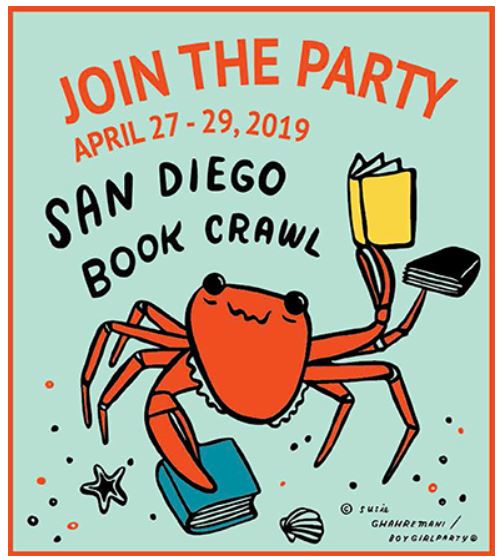 In San Diego, Calif., indies are partnering for the third annual
In San Diego, Calif., indies are partnering for the third annual IPC.0211.T4.INDIEPRESSMONTH.gif)
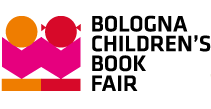 On April 2, a panel of 10 accomplished women--authors, illustrators, editors--from countries including Italy, Spain, France and the United States gave presentations on their experiences with and successes in the publishing industry. Maria Russo, children's books editor for the New York Times Book Review, moderated the trilingual panel, organized by
On April 2, a panel of 10 accomplished women--authors, illustrators, editors--from countries including Italy, Spain, France and the United States gave presentations on their experiences with and successes in the publishing industry. Maria Russo, children's books editor for the New York Times Book Review, moderated the trilingual panel, organized by 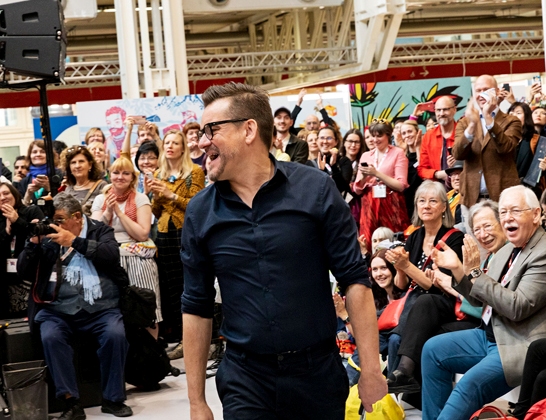
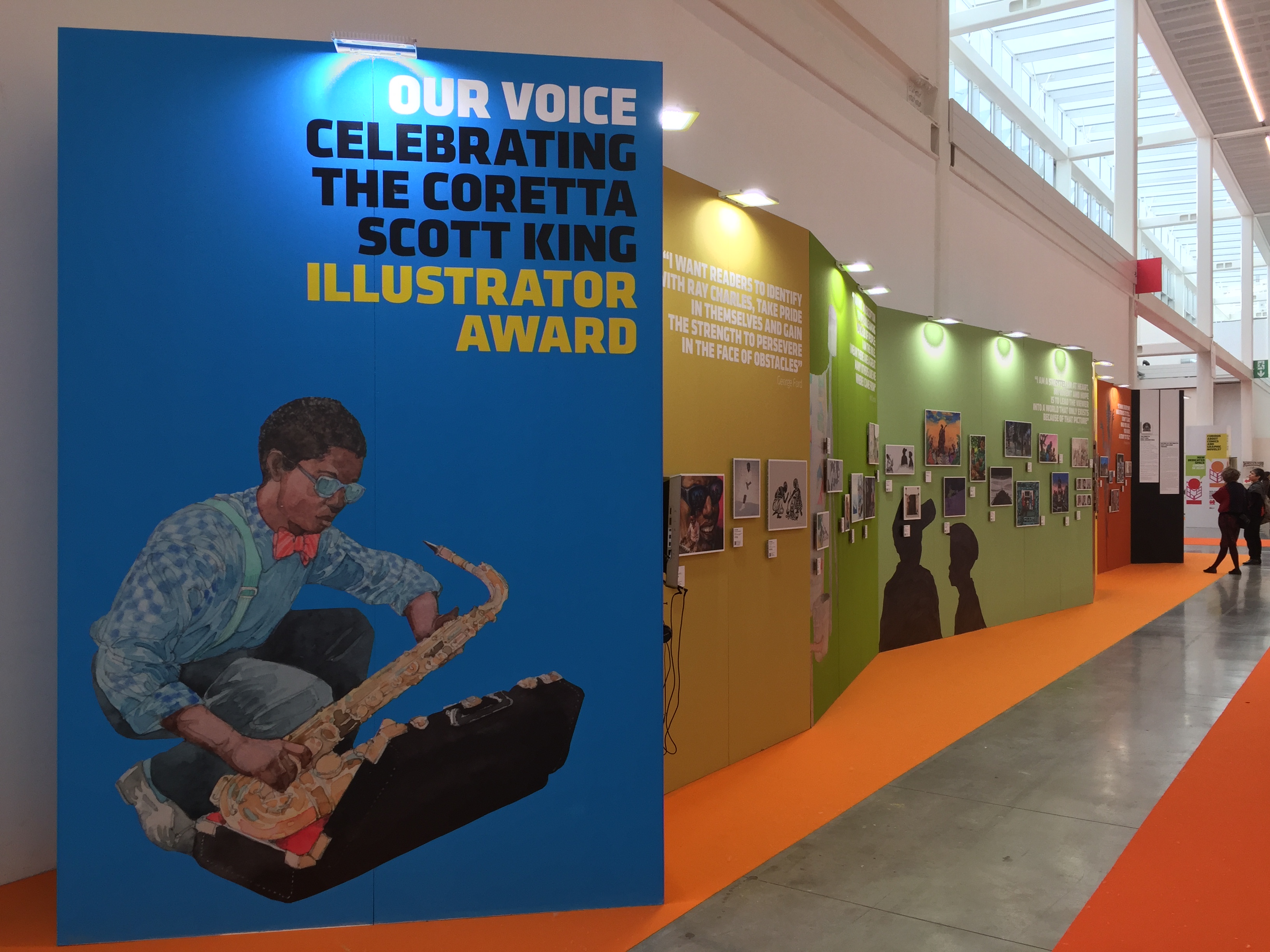 The traveling illustration exhibit "
The traveling illustration exhibit "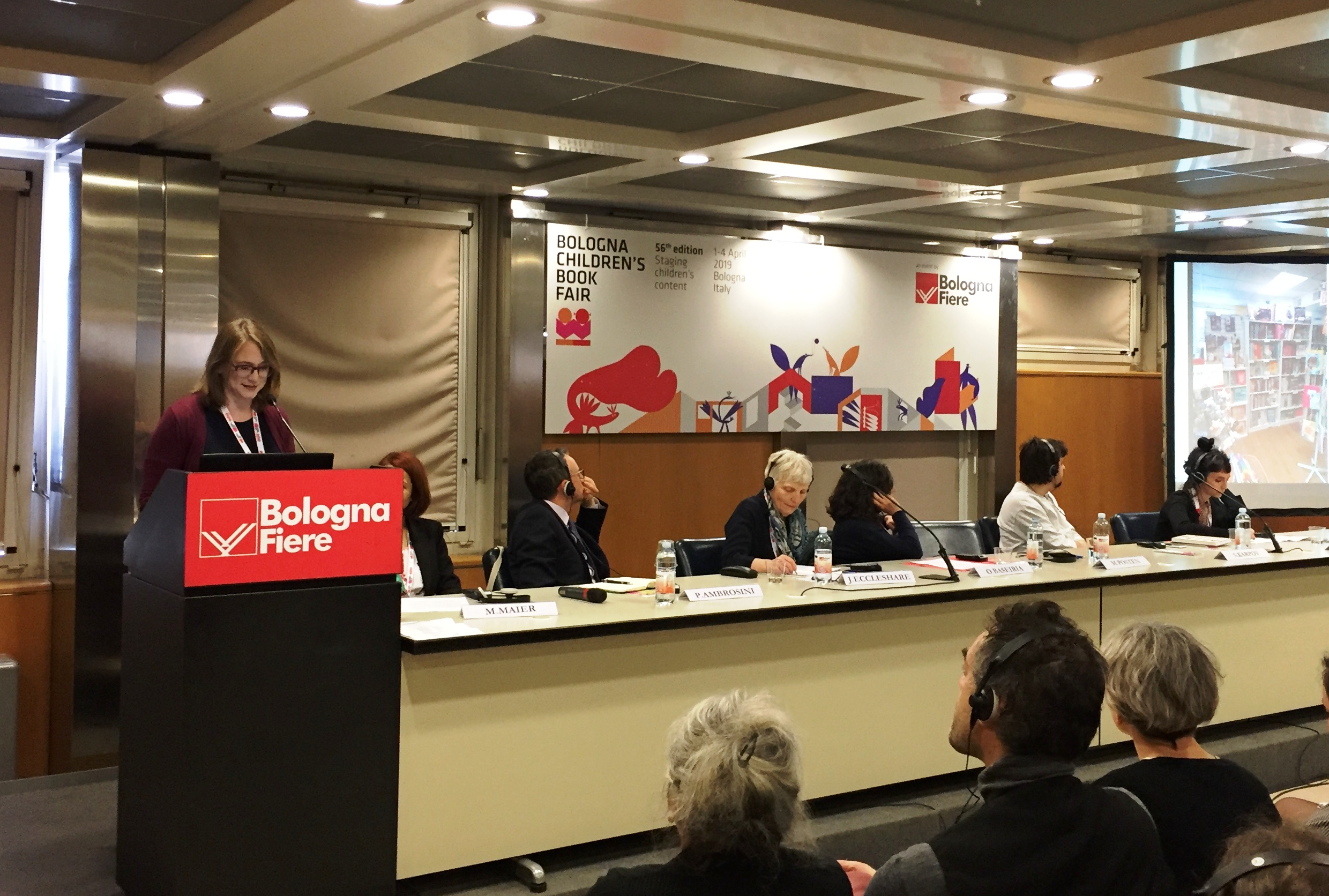 On April 4, the BCBF featured 13 booksellers (including Melissa Posten from
On April 4, the BCBF featured 13 booksellers (including Melissa Posten from 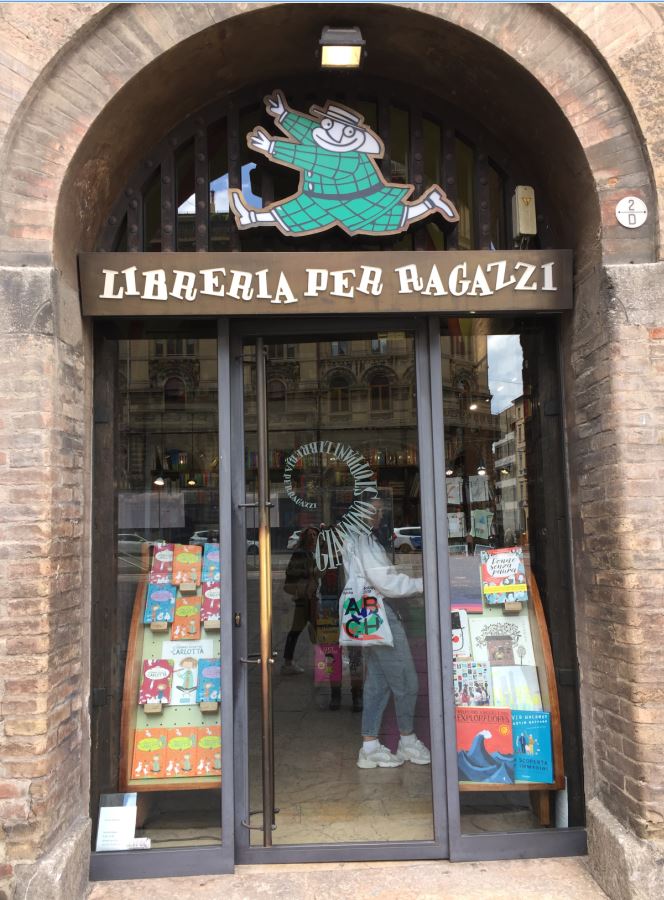 On April 4, the last day of the fair, many attendees visited Bologna's Libreria Giannino Stoppani, a children's bookstore located in the Piazza Maggiore. Anyone in the store who may have previously been unaware of the BCBF was quickly updated and immediately engaged in conversation with children's book professionals and enthusiasts.
On April 4, the last day of the fair, many attendees visited Bologna's Libreria Giannino Stoppani, a children's bookstore located in the Piazza Maggiore. Anyone in the store who may have previously been unaware of the BCBF was quickly updated and immediately engaged in conversation with children's book professionals and enthusiasts.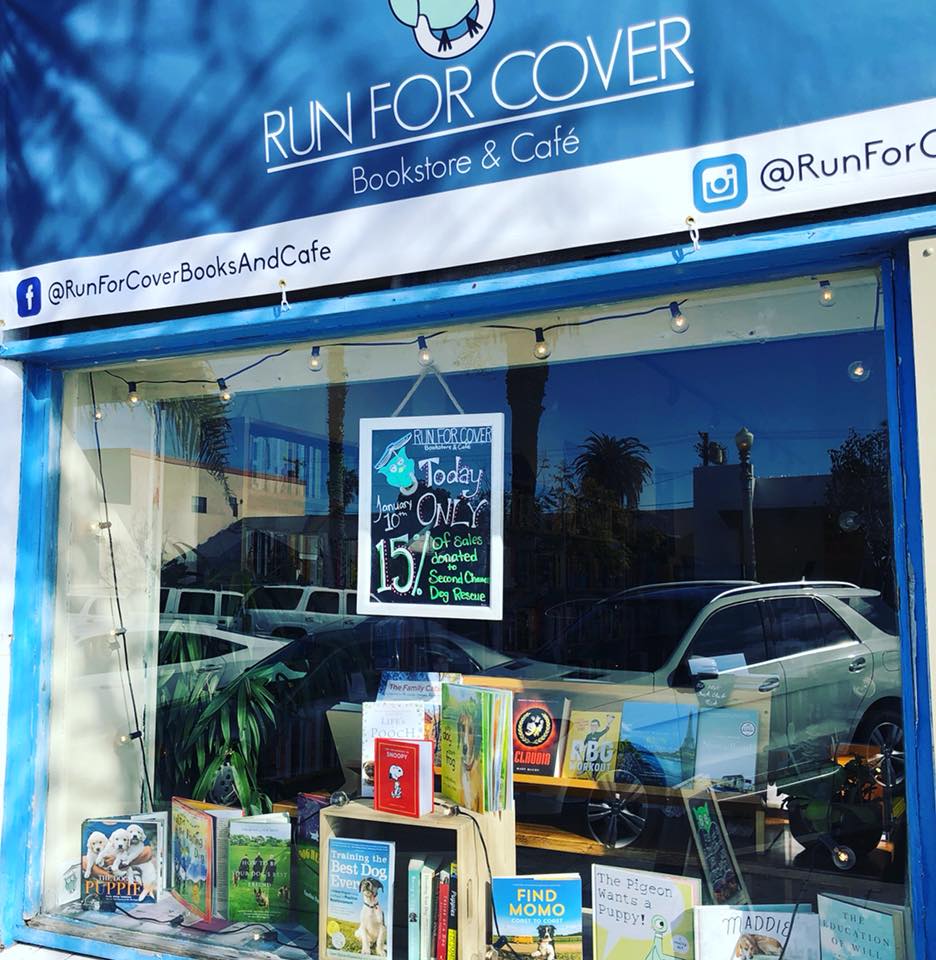 Roughly six months after opening,
Roughly six months after opening, 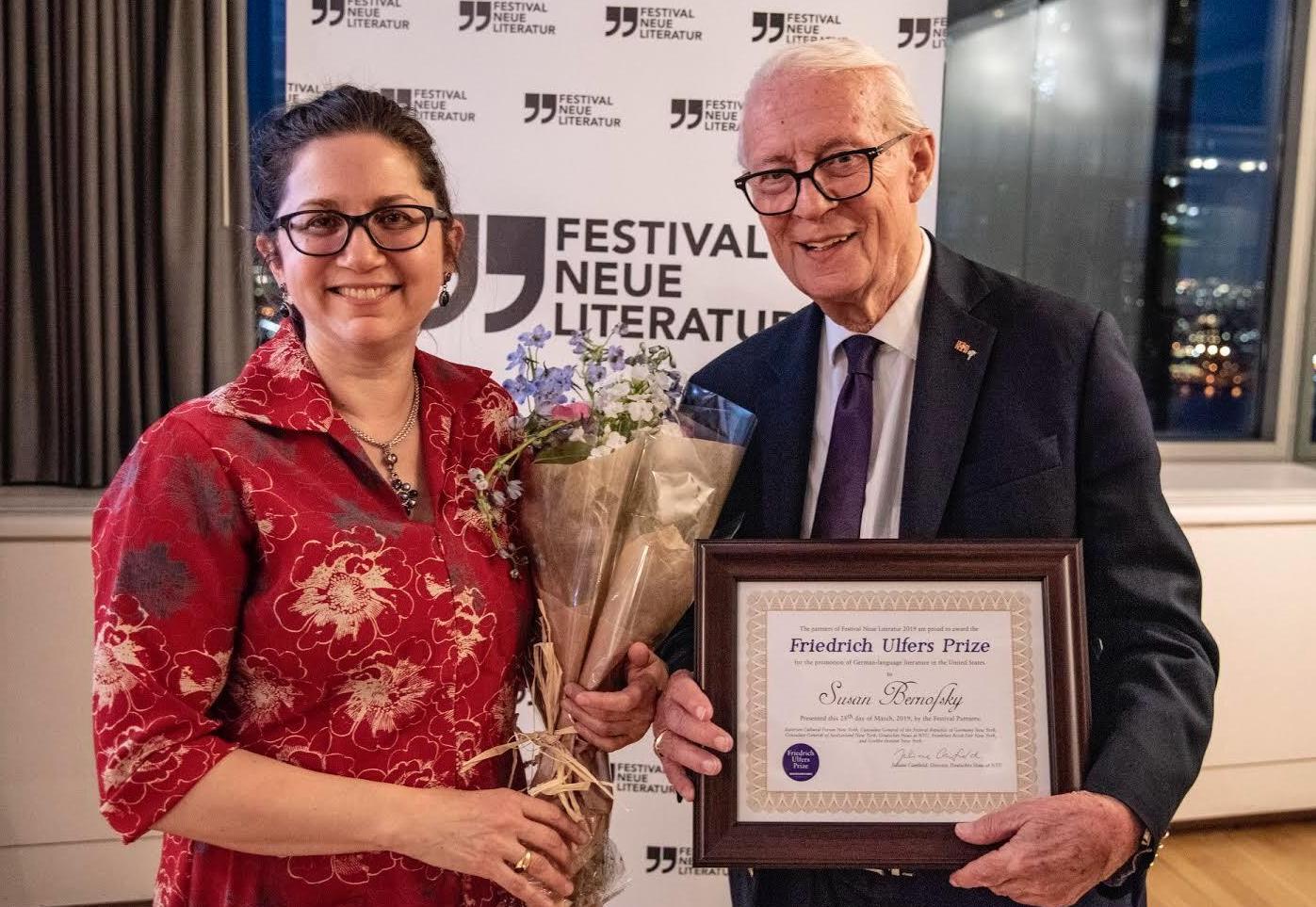
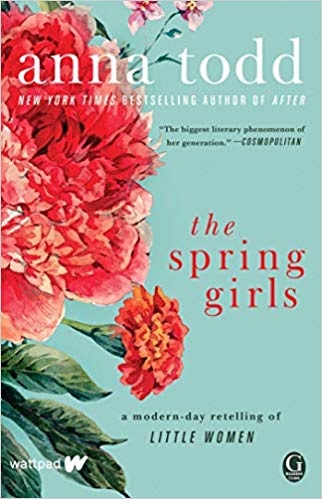 Pennie Clark Ianniciello, Costco's book buyer, has chosen The Spring Girls by Anna Todd (Gallery, $16.99, 9781501130717) as her pick of the month for April. In Costco Connection, which goes to many of the warehouse club's members, she wrote:
Pennie Clark Ianniciello, Costco's book buyer, has chosen The Spring Girls by Anna Todd (Gallery, $16.99, 9781501130717) as her pick of the month for April. In Costco Connection, which goes to many of the warehouse club's members, she wrote: 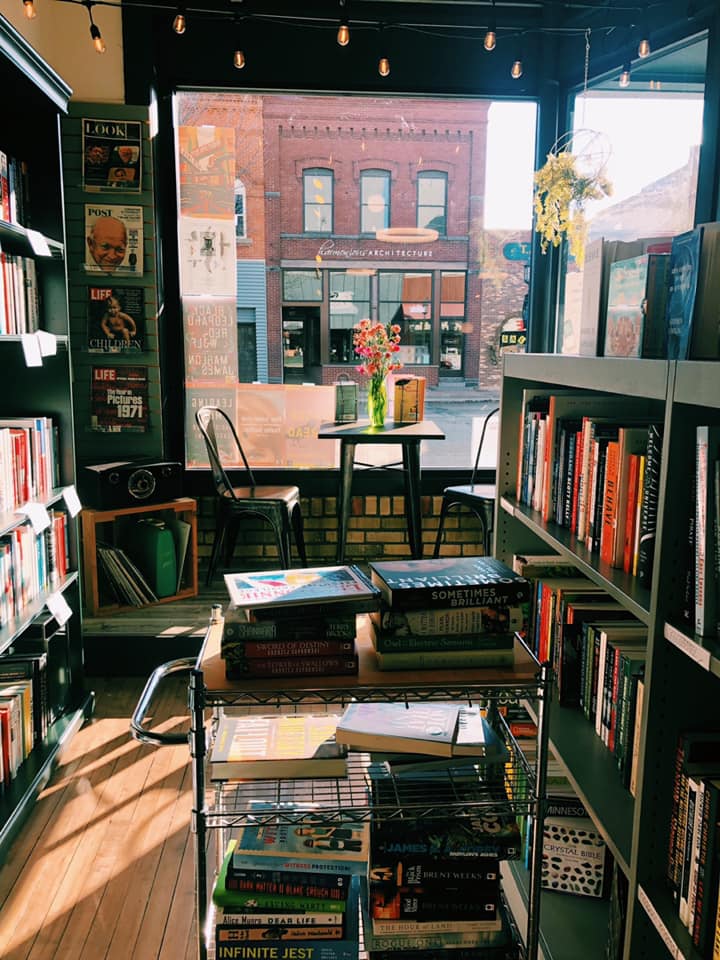 The Willow Bookstore
The Willow Bookstore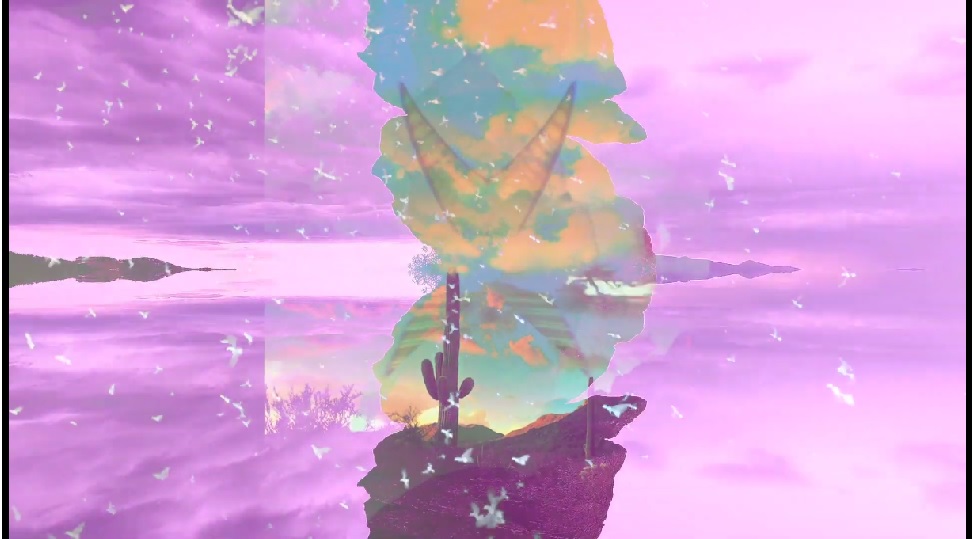 The Light Years: A Memoir
The Light Years: A Memoir
 Book you're an evangelist for:
Book you're an evangelist for: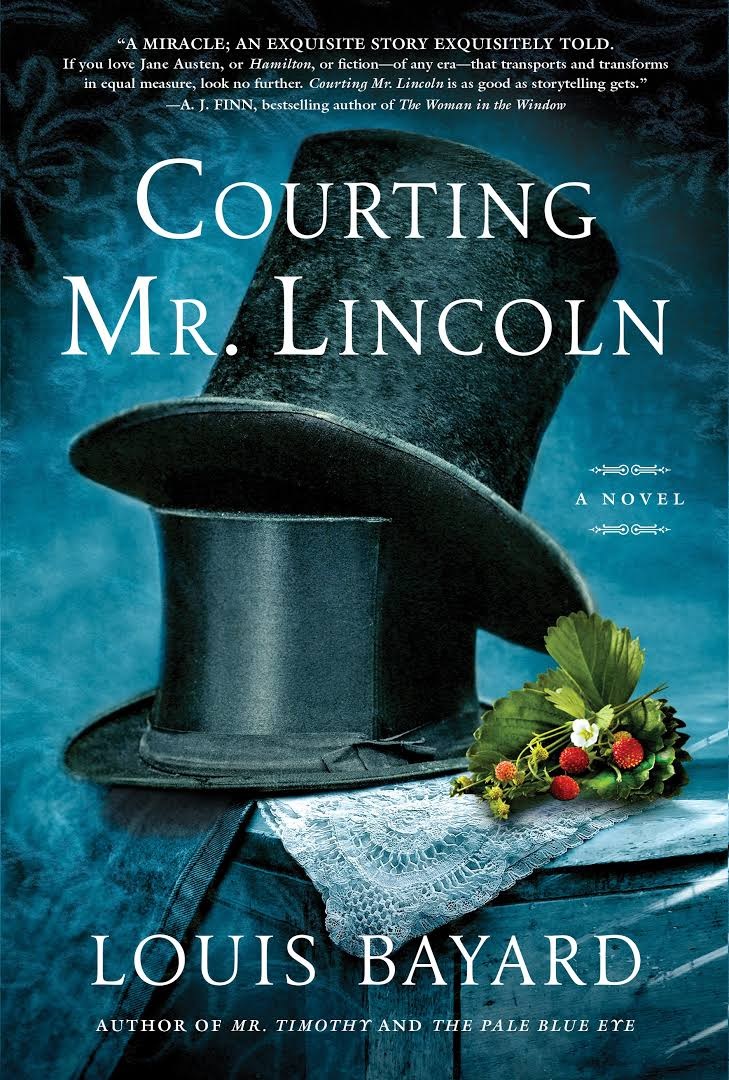 With wit and charm that only Louis Bayard can deliver, Courting Mr. Lincoln transports readers to 19th-century Springfield, Ill., to view both the romance of Abraham Lincoln and Mary Todd and the intimate friendship of the future president and a dry-goods merchant named Joshua Speed. As he did with Edgar Allan Poe in The Pale Blue Eye and Theodore Roosevelt in
With wit and charm that only Louis Bayard can deliver, Courting Mr. Lincoln transports readers to 19th-century Springfield, Ill., to view both the romance of Abraham Lincoln and Mary Todd and the intimate friendship of the future president and a dry-goods merchant named Joshua Speed. As he did with Edgar Allan Poe in The Pale Blue Eye and Theodore Roosevelt in 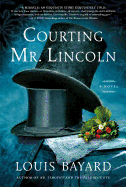
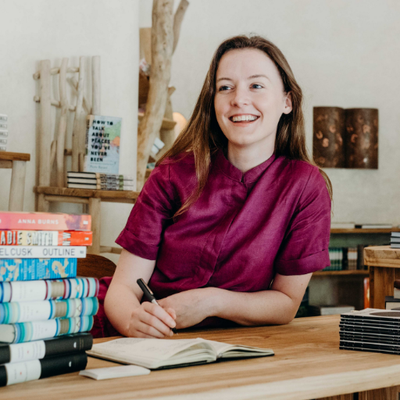
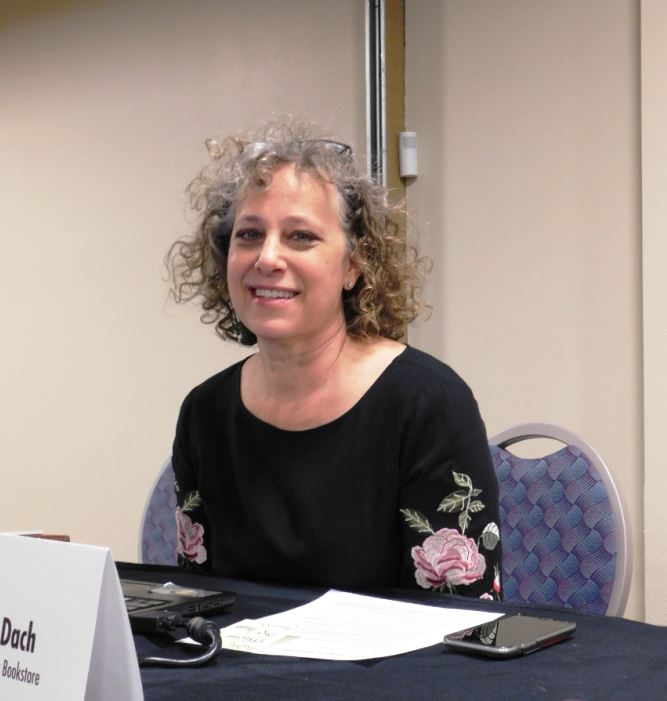
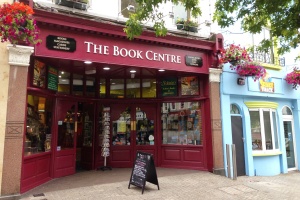 In an interview last week with the Irish Examiner, Maeve Ryan, managing director of the Book Centre, Waterford city, was asked about the rewards of being in the books business. "When I worked in fashion retail, it was very fast-paced," she said. "Here, you get a lot more time to spend with customers, which is what we are all about. It is all about the atmosphere and a relaxing environment, and
In an interview last week with the Irish Examiner, Maeve Ryan, managing director of the Book Centre, Waterford city, was asked about the rewards of being in the books business. "When I worked in fashion retail, it was very fast-paced," she said. "Here, you get a lot more time to spend with customers, which is what we are all about. It is all about the atmosphere and a relaxing environment, and